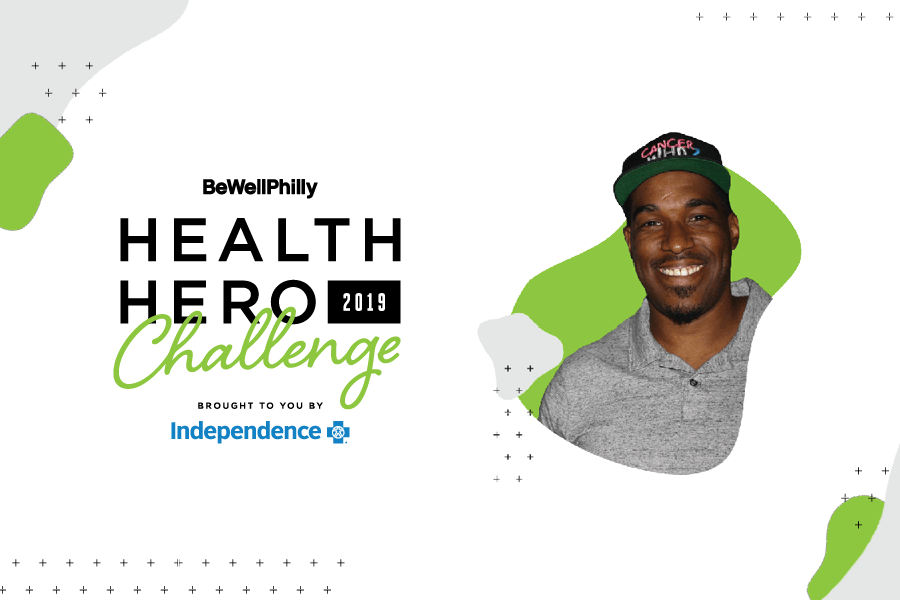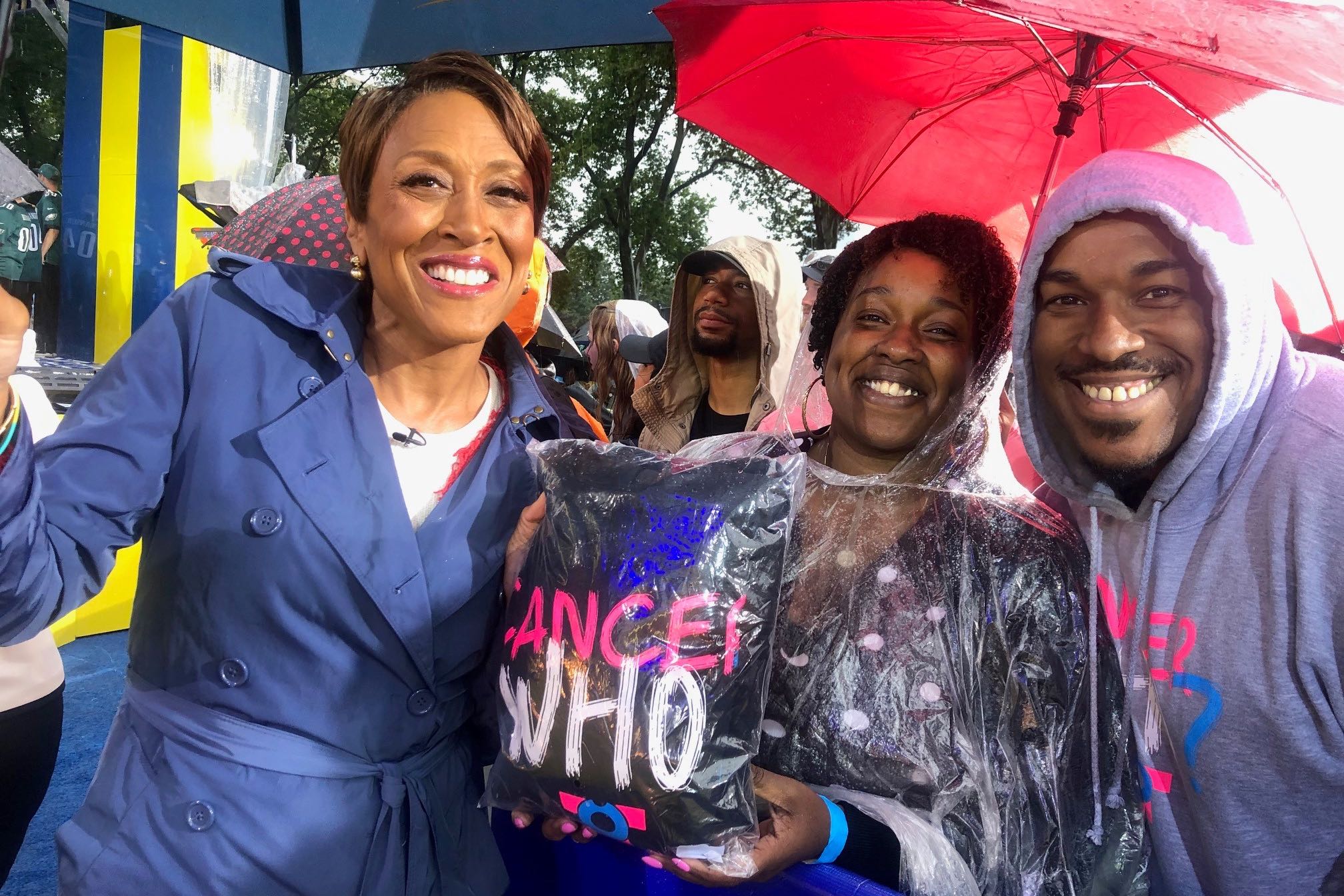This Philly Man Wants to Support Your Family Through Cancer Treatment
Al Harris is the founder of Team OverTime — and one of our Health Hero Challenge semifinalists.

Al Harris is the co-founder of Team OverTime, a nonprofit that provides emotional and logistical support throughout cancer treatment. / Graphic by Meredith Getzfread
Over the next few weeks, we’ll be chatting with our semifinalists in the 2019 Be Well Philly Health Hero Challenge to give you a glimpse of the people who are helping Philadelphians live healthier lives. Vote once a day, every day, to help decide which of these 10 semifinalists become one of three finalists — and get a sizable donation to a charity of their choice — here.
Name: Al Harris
Role: Co-founder of Team OverTime, a nonprofit that provides emotional and logistical support throughout cancer treatment.
***
Describe a health- or fitness-related turning point in your life.
I had three family members who went through cancer all at the same time. My older cousin had stage IV breast cancer, and they gave her six months to live, and she beat it in six months. My younger cousin had brain cancer, and my wife’s stepfather had colon cancer. He was a runner, used to run marathons and things like that. He was going through cancer, but he still had the passion to run. But a lot of people didn’t have time to go running with him.
Me and him was just talking one day, and I was a lot younger at the time, kind of cocky. He said, ‘Come on, let me take you up Kelly Drive.’ He just obliterated me. (Mind you, this man had stage IV colon cancer.) We did three miles, and he did it oh so fast. I saw what it did for his spirit — it was more rewarding for him to have somebody by his side. So we started to run three times a week. We would run, we would talk. Those were some of our best conversations. Eventually, he passed away. I wanted to know if there was a program out there that was like the bonding he and I had. And I couldn’t find any. The turning point for me was to identify that gap in support and attack that problem.
So my wife and I created Team OverTime, which is also known as Cancer Who?. We become like extended family members to the person who’s going through cancer and their families. We go to chemo, radiation, doctor’s visits, the cookouts, the birthday parties, things like that.
But more so, me and my wife know how it felt being caretakers. We know it’s a lot on a person going through cancer but also a lot on a caretaker. If someone has to miss chemo this week because they really can’t take off work, we’re going to be there for it. If they can’t go to radiation, then we’re there. We also want to provide resources, the resources we didn’t have when our family members were going through cancer. We love to partner with other organizations. Like the Breathing Room Foundation. They basically donated about 15 brand-new, full-size beds to us, so we can give to some of the people we support and the caretakers. Everything’s free, too. Nothing’s for a dollar.
We have no limitations. We support over 100 families here in Philly, nationally over 250. When we’re in the hospital, you would think we’re like family members, receiving the information with the person that we’re supporting. That’s the most vital part of us. The information we help receive, we can also bring it down to layman’s terms or we can help store that information, if it’s like groundbreaking or heartbreaking information, of course the person is not taking it all in. We’re able to store that information – at another point, able to break that information down to them and their family.

Team OverTime is starting to get national recognition for its work. / Photograph courtesy of Team OverTime
What “policy” would you institute to make greater Philadelphia a Healthier region?
Along with yearly check-ups, I believe there should be a quarterly nutritionist check-up, where they can provide BMI, blood pressure, food intake, and proper meal plans.
Team OverTime has its own center that we just opened up in February. We’re going to start doing quarterly nutrition checks with a dietitian and a nutritionist. They’ll transfer that information over to their primary doctor, and their primary doctor will adjust the nutrition plan as they go.
What’s the most important part of your health or wellness regimen?
Just watching what I eat because of the knowledge that I’ve gained. Trying to not eat as much processed food. I’ve also been a vegetarian for the past three years, and that’s just based off of what I’ve learned through this process.
What is your number one piece of health-related advice/encouragement?
Gain as much information as possible. I would say you can never run out of information or new things to learn about getting healthy or about nutrition. So I would say information is key, information is gold. I tell the people I support, ‘Never be afraid to ask your doctor or any health attendant that’s in front of you questions.’
What motivates you to try and make Philadelphia a healthier place?
I walk into hospitals every day and see people that need help. Not all of them have physical problems. Some just need to be heard and knowing that makes me feel like I can make a difference by providing an organization that helps with emotional and mental health.


